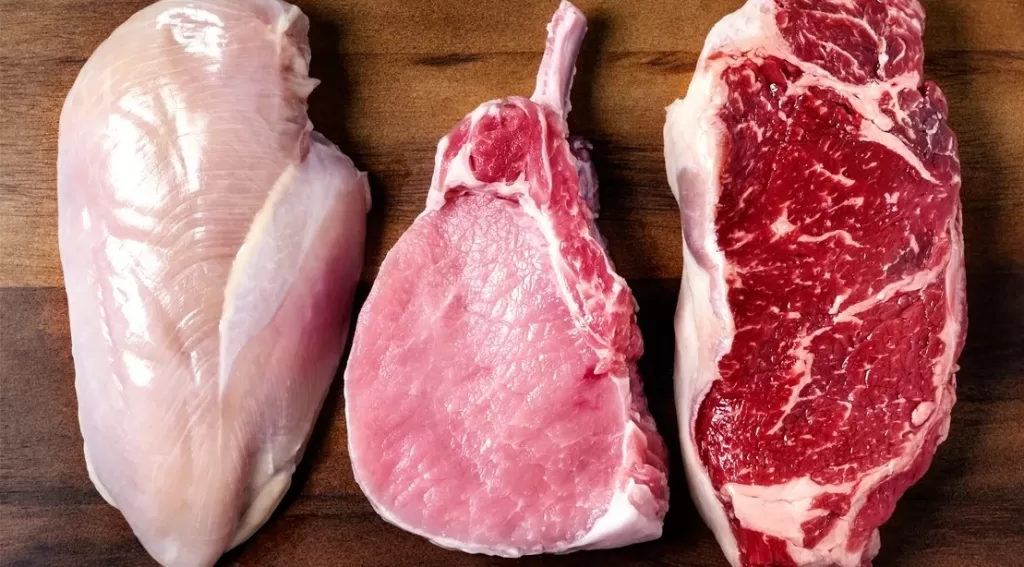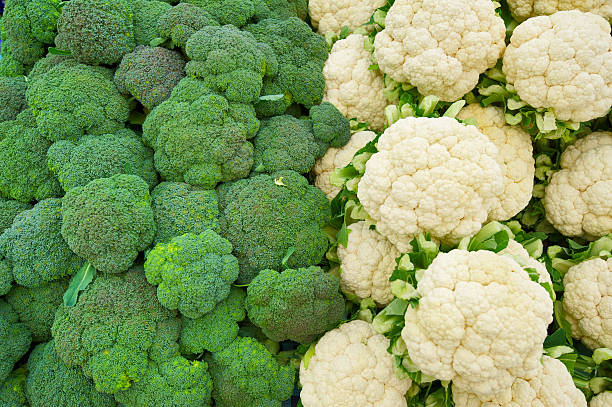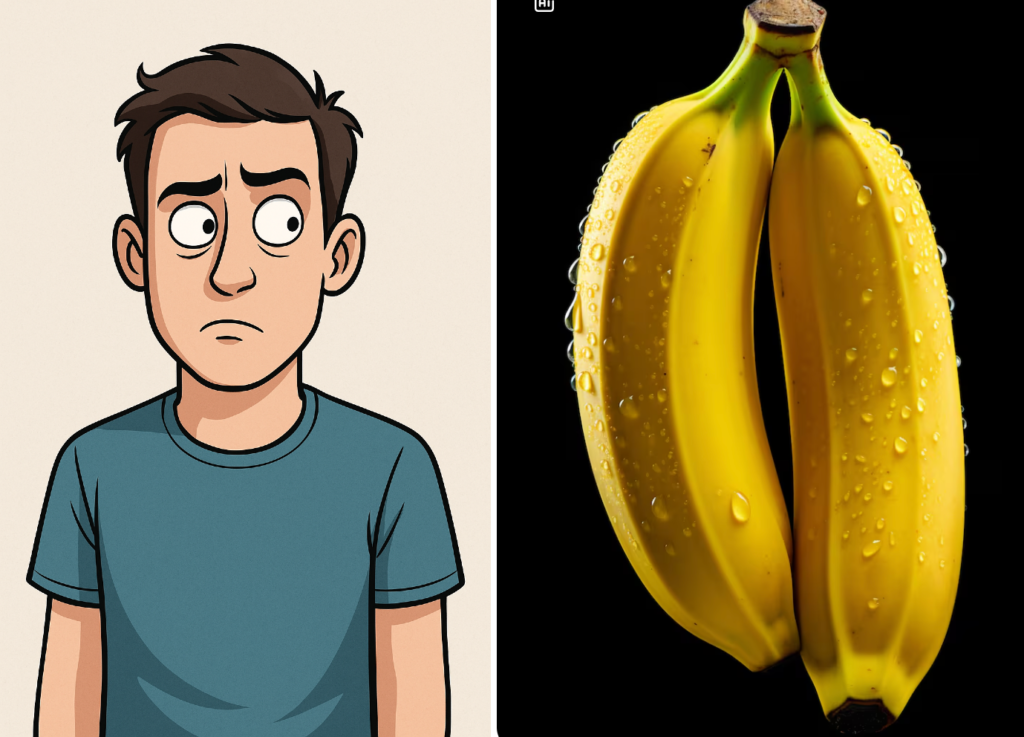The thyroid gland, shaped like a butterfly, is located near the base of the neck. The gland regulates the body’s metabolic functions. It makes thyroid hormones, which control many things in the body, like a healthy metabolism, growth, and development. It also ensures that one’s health is maintained. Numerous issues can arise when the thyroid gland is underactive or hyperactive.
One of the best ways to ensure that the thyroid gland is functioning optimally is through the food we eat. Many of the nutrients we eat every day can help our thyroid gland keep its balance, or if it isn’t working well, get there.
What foods are ideal for thyroid health?
First of all, you need certain nutrients to keep your thyroid healthy, especially if you are at risk of an iodine deficiency, which can mess up how your thyroid works. Hence it won’t be able to create adequate hormones without enough iodine intake (about 150 mcg per day), which might result in hypothyroidism (an underactive thyroid).

So, here are a few healthy choices if you’re seeking iodine-rich foods to support thyroid function:
But before we look at the best foods to eat to fight the thyroid, it might be best to clear up some common misconceptions about how the thyroid diet can cause a thyroid imbalance:
- Hereditary causes,
- Iodine Deficiency
- Certain medications
- Developmental Defect
Our thyroid health is often impacted by the food that we consume. Always keep an eye on your food if you have a thyroid problem of any kind. To take adequate care of your thyroid health, you need to be aware of which foods are healthy and which ones you should avoid.
The foods you eat can have an impact on thyroid diseases, including hyperthyroidism and hypothyroidism, in addition to drugs and other treatments. So it’s important to know which foods support thyroid function if you have thyroid problems or a thyroid imbalance. Also, it’s a good idea to know what foods can hurt your thyroid and what causes thyroid problems, so you don’t unintentionally make thyroid problems that you already have worse. Always check in with your primary care provider before making any significant dietary adjustments.
Good food that you should eat for hypothyroidism
When we have hypothyroidism, our thyroid glands are unable to create enough thyroid hormones to keep our bodies healthy. One of the factors that can lead to hypothyroidism is a lack of iodine. Iodine-rich foods can help hypothyroid patients’ thyroid functions.
Continue reading to find out more about meals that can help your thyroid as well as foods you may want to avoid if you have a thyroid problem.
1. Iodine, which is necessary for thyroid function, is found in seaweed.
Iodine, a vital vitamin for thyroid function, is abundant in seaweed. Iodine, according to Dr. Dodell, is a precursor in the creation of thyroid hormones. Seaweed, which can be purchased in the form of nori, dulse, and wakame, can be used in a variety of dishes, including sushi, soups, and salads. Additionally, seaweed is a good source of calcium, fiber, and vitamins A, B, C, E, and K.
Dodell warns that iodine can be consumed in excess, which can exacerbate thyroid illness. But the American Thyroid Association says that taking supplements with iodine makes you more likely to get this condition. Before increasing your iodine consumption, be sure to consult your doctor.
2. Fish omega-3s reduce inflammation and boost immunity
Having fatty fish for lunch or dinner is a great idea because it contains omega-3 fatty acids, according to Virginia Turner, MS, RD, LDN, clinical nutrition manager with Morrison Healthcare in Tennessee. Untreated hypothyroidism can lead to higher levels of low-density lipoprotein (LDL), or “bad” cholesterol, which raises the risk of heart disease.
Omega-3s are well known for reducing inflammation, boosting immunity, and reducing the risk of heart disease, says Turner. Selenium, a vitamin that helps reduce inflammation and is usually found in the thyroid gland, is found in large amounts in fish. Selenium can be found and is present in fish.
3. Your taste senses and protein are taken care of by chicken and beef.

Zinc is another important nutrient for your thyroid. Your body needs zinc to make thyroid hormones. Hypothyroidism could be caused by not getting enough zinc, according to a study from 2013 that was published in the International Journal of Trichology. But consider this:
Since your thyroid hormones help you absorb the mineral, you could also become zinc deficient if you have hypothyroidism or thyroidism. An article from the International Journal of Trichology from 2013 says that when this happens, you may also have bad side effects, such as severe alopecia, an autoimmune disorder that attacks hair follicles and makes hair fall out in clumps.
You probably already get enough zinc (the vast majority of people in the United States do), but you could be at risk for a shortfall if you have a poor diet or a digestive issue that stops you from absorbing zinc, such as celiac disease or Crohn’s disease.
4. Nuts Contain a High Selenium Content, Supporting Thyroid Function
Nuts are a convenient snack that you can carry anywhere and are another excellent source of selenium. According to a 2017 review in the International Journal of Endocrinology, foods high in selenium, such as Brazil nuts, macadamia nuts, and hazelnuts, support healthy thyroid function.
You only need to consume one or two Brazil nuts, while a modest handful of other nuts will provide you with all the nutrients you need each day. However, keep in mind that nuts are also very high in fat, so it’s important to watch your portion sizes. One thing to keep in mind is that eating walnuts at the same time you take your prescription can cause thyroid hormone absorption to be affected.

5. Whole Grains Reduce Constipation, a Hypothyroidism Symptom
One typical sign of hypothyroidism is constipation. Foods made from whole grains, such as cereal, bread, pasta, and rice, are rich in minerals and fiber, both of which can promote regular bowel movements. Turner warns that fiber may conflict with artificial thyroid hormones. Some people with hypothyroidism decide to stay away from whole grains completely, but an expert says that if you do eat them, you should take your thyroid medicine a long time before or after eating high-fiber meals.
6. Your body is given the necessary fuel by eating eggs and berries.
According to the NIH, one big egg has 20% of the daily recommended selenium requirements and roughly 16% of the daily recommended iodine, making it a thyroid superfood. Eat the entire egg, as most of the iodine and selenium are found in the yolk, unless your doctor has advised you to do otherwise (try our proven method for cooking eggs over easy).
A study states that all berries are high in antioxidants, with black raspberries—with a deeper color—being the “best” berry. Black raspberries have a lot of fiber, a lot of antioxidants, and comparatively little natural sugar.
Iodine, vitamin D, and selenium are important components of the oral thyroid-supporting diet, but other nutrients are also important. Perhaps not surprisingly, antioxidant-rich foods are also beneficial for your thyroid. Biomedicine & Pharmacotherapy published a study in 2022 that found antioxidants can help treat thyroid disorders.
7. Fresh Fruits and Vegetables That Can Help You Control your Weight
Weight gain is an early sign of hypothyroidism. Fresh fruits and vegetables and other low-calorie, high-density foods are the basis of any good plan to lose weight. If at all possible, add fresh produce or fruit to each meal. Antioxidants are nutrients that are known to lower the risk of heart disease. Many foods, like blueberries, cherries, sweet potatoes, and green peppers, have a lot of antioxidants.
Hypothyroidism patients may want to limit their daily intake of cruciferous vegetables like broccoli and cabbage to 5 ounces. This will keep the thyroid from not being able to absorb iodine, which it needs to work well.
8. Dairy Supplements Your Thyroid Diet with Vital Vitamin D
In a 2018 study published in the Indian Journal of Endocrinology and Metabolism, it was found that patients with autoimmune thyroiditis who took vitamin D supplements had higher levels of thyroid antibodies, and those with hypothyroidism had higher levels of thyroid-stimulating hormone. This suggests that vitamin D may help improve thyroid function.
In addition to vitamin D, there is also a lot of calcium, protein, and iodine in fortified milk. Foods like yogurt with healthy bacteria may help manage other bacteria because Hashimoto’s may also produce changes that contribute to stomach disorders like heartburn, according to Dodell.
9. Beans support energy for overall growth
Beans are a cheap, versatile food that is a great source of long-lasting energy. If you are tired because of hypothyroidism, this could be helpful. Protein, anti-oxidants, complex carbs, and a ton of vitamins and minerals may all be found in beans. Also, they have a lot of fiber, which is helpful if you have trouble going to the bathroom, which is a common side effect of hypothyroidism.
If you’ve never had beans before, there are many different kinds to try. All of them may be added to soups, salads, stews, and entrées as a base or as a side dish. Just be careful not to overdo it—the recommended daily fiber intake for adults is between 20 and 35 grams, but too much fiber can interfere with your hypothyroidism therapy.

Foods to stay away from if you have hypothyroidism
- Fruits and vegetables including strawberries, peaches, kale, broccoli, and cabbage
- Foods high in fat and fat
- Soy products like edamame and tofu
Good foods that you should eat for hyperthyroidism
The thyroid gland overproduces thyroid hormones when hyperthyroidism is present. Diet alone cannot cure thyroid disorders, although it can help its function. Following are a few good foods that can aid with hyperthyroidism:
1. Non-iodized Salt
If your doctor recommends a low-iodine diet, avoid iodized salt in favor of sea salt or non-iodized salt.
2. Only egg white
The iodine content in egg yolks is higher than in egg whites. If you’re told to, choosing only the whites will help you limit the amount of iodine you take in. beneficial for hyperthyroidism.
3. Salmon
Freshwater salmon contains healthy fats that can help you maintain a healthy weight. This is crucial for people with an overactive thyroid who frequently experience weight loss. But because ocean water has too much iodine, you might want to stay away from saltwater fish.
4. Avocado Oil
A condition known as hyperthyroidism is autoimmune. It indicates that your body’s defense cells are attacking your body’s cells because they believe they are foreign objects. The immune system responds negatively to inflammation in thyroid illness. According to research, olive oil contains anti-inflammatory qualities. It lessens the inflammatory symptoms associated with thyroid disorders.
5. Foods high in calcium:
Hyperthyroidism can weaken bones if left untreated. Get at least three servings of calcium per day in order to combat this. Since dairy products have iodine in them, you might want to focus on calcium sources other than dairy.
Starting with fortified foods is a good idea, but if your calcium intake falls below the 1,000 milligrams (mg) daily recommendation, you might also think about talking to your doctor about calcium supplements. For women and men over the ages of 51 and 71, the daily dosage is increased to 1,200 mg.
6) Dairy items
If unchecked, hyperthyroidism can erode your bones and cause osteoporosis. To avoid this, include three servings of calcium per day in your thyroid diet from yogurt or other dairy products such as cheese and milk.
7) Crustaceans, such as broccoli and cauliflower

The Brassicaceae family is made up of cruciferous vegetables like kale, cauliflower, bok choy, broccoli, and Brussels sprouts. The goitrogenic chemicals in these vegetables can affect thyroid function if they are eaten raw and in large amounts. Consuming cruciferous veggies in moderation while cooking them can help you prevent hyperthyroidism complications. Consequently, this food is beneficial for hyperthyroidism.
8. Seafood
Iodine is a mineral that is needed to make thyroid hormones. Cod, tuna, seaweed, shrimp, and other shellfish are all good sources of iodine. Selenium is a mineral that helps thyroid hormones work. Both sardines and tuna have a lot of it. Oysters, Alaskan king crab, and lobster are all good sources of zinc, which is an important mineral for the thyroid because it helps control how much thyroid hormone is released and taken in.
9. Turkey
Turkey is a high-protein diet, which is crucial because your body needs protein for both energy and the development and maintenance of muscle mass. Getting adequate protein can help you maintain a healthy weight because weight loss is a typical symptom of hyperthyroidism. You don’t eat meat, are you? Just make an effort to include protein in every meal.
Foods to stay away from if you have hypothyroidism
- Iodine-rich food like iodized salt, seaweed, and seafood
- Soy products: soy milk, tofu, and edamame beans
- Caffeine
- Gluten-rich food
Adapting your diet to your demands for thyroid health will help your thyroid function. For the body to function properly, the thyroid gland must be in good health.

Disclaimer: This information is for educational purposes only, and no medical advice should be inferred from it. Before changing your diet or adding supplements, please talk to your doctor.
The author’s views are his or her own. The facts and opinions in the article have been taken from various articles and commentaries available in the online media and Eastside Writers does not take any responsibility or obligation for them.
Note: Contact our Writers at www.eastsidewriters.com for writing Blogs/Articles on any niche. We have experts in various domains from Technology to Finance and from Spirituality to Lifestyle and Entertainment.
Originally posted 2022-12-17 03:35:18.







Pingback: Obtain relief from bothersome constipation with Natural treatments - Eastside Writers
Pingback: Reasons, Indications, Treatments, And LifeStyle Changes Due To High Cholesterol - Eastside Writers
Pingback: Ashwagandha - The Vitalizing Herb For Your Body's Natural Rejuvenation - Eastside Writers